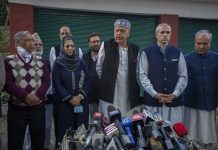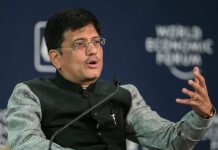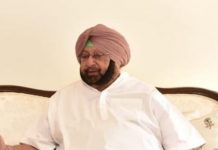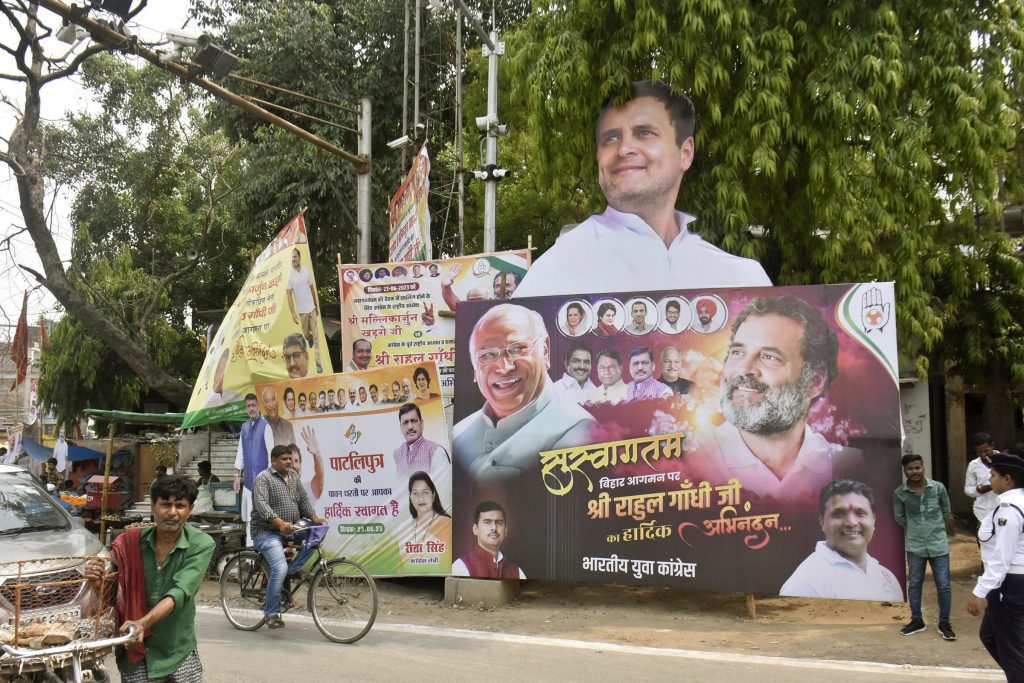
As 15 political parties at the Patna event team up to challenge the BJP in 2024, the alliance may be christened ‘Patriotic Democratic Alliance’ in order to blunt ‘nationalism’ narrative of the BJP.
Though Union Home Minister Amit Shah pooh-poohed the united opposition meeting at Patna as a mere ‘photo session’ and a ‘no show’, the joining of hands by leaders of 15 political parties for their common goal of ousting the BJP-led government at the Centre is a significant move.
The assemblage of 15 political parties, 32 leaders, ahead of the 2024 Lok Sabha elections is enough to send a strong signal for opposition unity to take on ruling BJP at the Centre in the 2024 general election. However, the blip, between the Congress and the Aam Aadmi Party over the Central ordinance on the Delhi government’s powers sends a wrong signal to the public. The Congress maintained that the meet was not a platform to discuss parliamentary issues such as the ordinance, the AAP insisted that it will be difficult for the party to attend any future meetings till the Congress publicly denounces the ordinance. The deliberations lasted close to four hours, after which the leaders, in one voice, announced that they intended to contest the polls together.
The positives before Bengaluru meet
The united opposition is to soon formulate its common minimum programme at Bengaluru on July 12. According to reliable sources, the old United Progressive Alliance is being given a go by and the new alliance of opposition parties would be named ‘Patriotic Democratic Alliance’. The new word “Patriotic” symbolises the determination of a direct confrontation to the political hegemony of RSS-BJP of using nationalism for their political benefit. The opposition intends to blunt ‘nationalism’ narrative of the ruling party with its patriotic identity.
That the ruling party is taking note of the developments can be understood from the fact that Amit Shah must not have convened the opposition leaders to discuss the Manipur massacre but for the opposition forging unity. The resolve of the opposition leaders to defeat the BJP is also manifest in their move to prepare a blueprint of the strategy and programme even before arriving in Patna to participate at the meet. They had already worked out the tactics to field one candidate against the BJP candidate in one constituency making the contests one on one on most seats. As Congress president Mallikarjun Kharge told the mediapersons after the meet that the stronger party in a particular state would be given preference in finalising the electoral mechanism.
Though Rahul Gandhi is willing to walk extra miles to accommodate the desires of the opposition leaders, it is presumed that after demolishing BJP’s Karnataka fort, the party may like to have some major share in other states too. The sources however maintain that Congress is keen to contest in at least 350 seats across the country, including in Bihar, Bengal, Jharkhand and Delhi, where regional parties RJD-JD(U), JMM, TMC and AAP, are the ruling parties with bigger vote shares.
The Bengaluru conclave would set a small core committee for constant monitoring and scheduling of the policies and programmes. The core committee would be entrusted with the responsibility to interact with the major state level party to finalise the seat sharing and sort out any problem.
Thorny issue of ordinance
As for the hostile attitude of AAP chief Arvind Kejriwal, a majority of opposition leaders opine that he should have adopted a pragmatic approach. On May 19, the Centre brought in an ordinance to curtail the powers of the elected government in Delhi. This was within a week of the Supreme Court’s order stating that the government in Delhi can make laws and administer civil services in the state. It is likely that the ordinance will be tabled as a Bill in the upcoming Monsoon Session of Parliament.
Soon after the Patna meet concluded, the AAP released a scathing statement targeting Congress. “The Congress, a national party that takes a stand on almost all issues, has yet to make its position on the Black Ordinance public. However, the Congress’ Delhi and Punjab units have announced that the party should support the Modi government on this issue,” AAP alleged. Before releasing this statement, Arvind Kejriwal and Bhagwant Mann also skipped the joint press conference addressed by leaders of parties present at the closed door meeting.
The Congress is in power in Rajasthan, Chhattisgarh, Himachal Pradesh and Karnataka while it shares power with alliance partners in Tamil Nadu and Jharkhand. It is the main Opposition in several other states. The AAP currently is in power in Delhi and Punjab and has made some inroads in Gujarat.
The Congress is unlikely to support AAP on the issue. In several public statements so far, the Congress first said that it would consult its state unit before announcing support for Kejriwal. Party President Mallikarjun Kharge said that the meeting was to discuss the possibility of a united front against the BJP ahead of 2024 and not for parliamentary matters. “Opposing it (ordinance) or proposing it does not happen outside, it happens in the Parliament. Before Parliament begins, all parties decide what issues they have to work on together. They (AAP) know it and even their leaders come to our all-party meetings,” Kharge said.
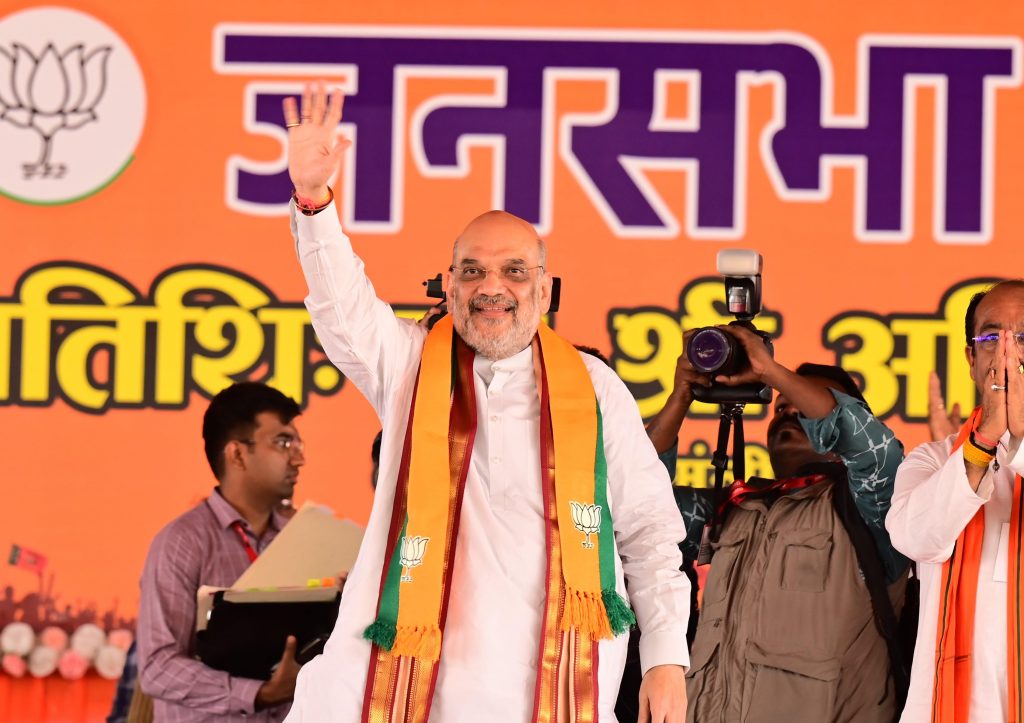
“It has not come as a setback at all for the opposition unity,” observed the CPI, General Secretary D Raja, who asserted that as independent political parties there can be “small angularities” on certain matters but those were being overcome. He said the secular democratic parties that have come together are capable of taking a decision on any issue “collectively”.
Even Nitish was unimpressed with the AAP going into a sulk over the ordinance, which seeks to curtail the powers of the Delhi government. The CPI(ML) Liberation general secretary Dipankar Bhattacharya said, “It is very unfortunate that the AAP seems to be looking at the issue through the prism of rivalry with Congress in Delhi and Punjab”. People’s Democratic Party chief Mehbooba Mufti said; “Arvind Kejriwal did raise the issue of the ordinance at the meeting. Nobody flinched from criticising the ordinance. I also did not hold a grudge against his party having voted in favour of scrapping Article 370. Though the agenda of the meeting was opposition unity”.
As the opposition parties gear up for the crucial Bengaluru conclave, more internal discussions will follow, new non-BJP parties will be approached and all efforts will be made to make the Bengaluru discussions more productive. Nitish Kumar, Rahul Gandhi, Mamata Banerjee and Sharad Pawar will play key roles.








